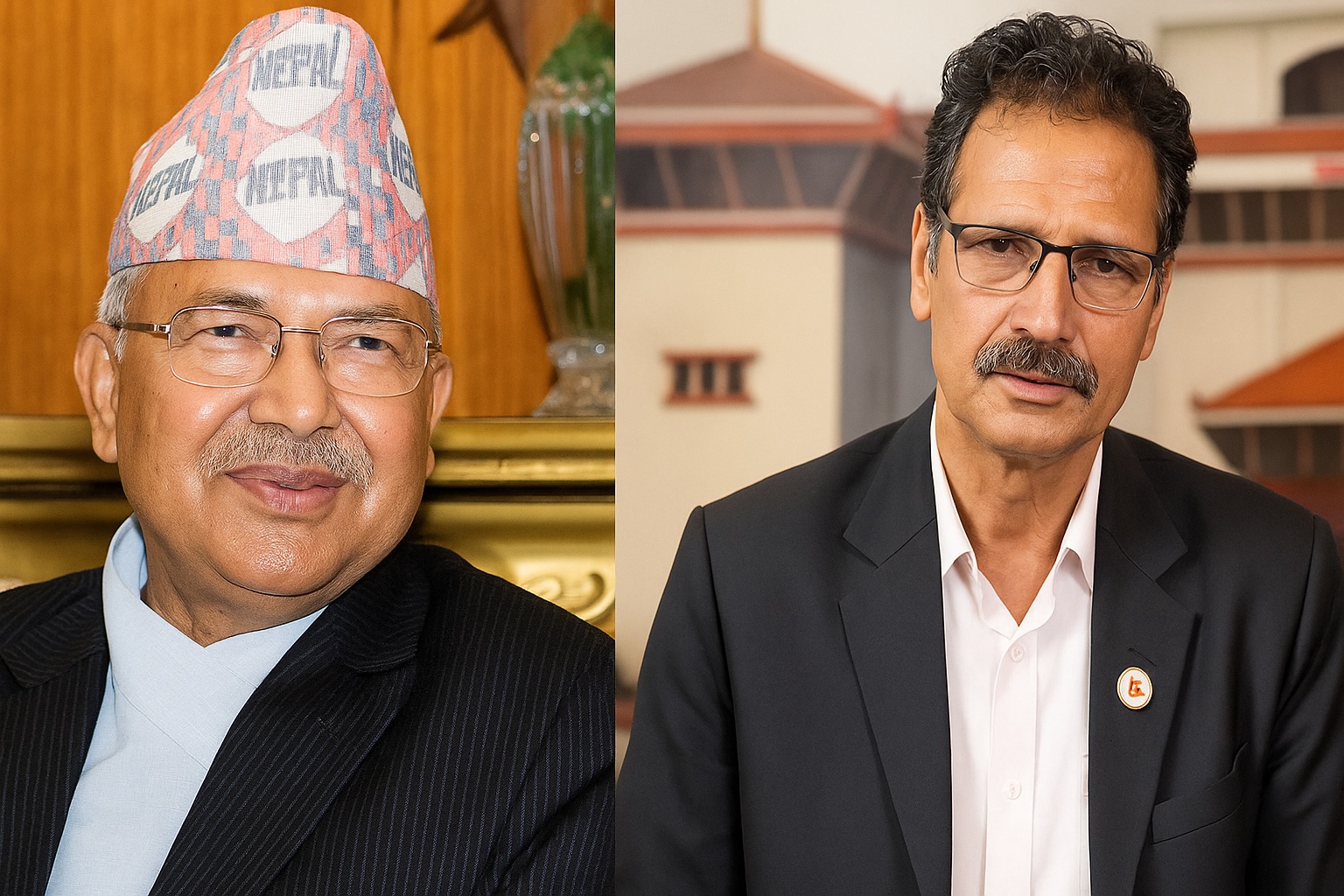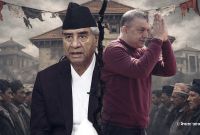Communist Crackdown? Madhav Nepal and Agni Sapkota Targeted in Stunning Legal Blitz!
Red Shadows Over Democracy: Are Nepal's Communist Titans Under Coordinated Fire?

Kathmandu — Nepal’s political sphere trembled this week as two of the most prominent opposition leaders—CPN-UML Chairman and former Prime Minister Madhav Kumar Nepal, and Maoist Centre Vice Chair and former Speaker Agni Sapkota—were swept into separate high-stakes legal battles. The twin legal actions, though unrelated in content, have sparked a wave of suspicion and concern over whether Nepal’s communist opposition is being deliberately weakened through judicial and institutional means.
The Madhav Nepal Case: Land Deal or Political Trap?
The Commission for the Investigation of Abuse of Authority (CIAA) filed a sweeping corruption case on June 5 against former Prime Minister Madhav Kumar Nepal, now a senior leader aligned with the CPN-UML, the main opposition party. The CIAA alleges that during his premiership in 2009, Nepal bypassed proper legal procedures to allow Patanjali Ayurved Nepal, an affiliate of the Indian conglomerate, to illegally acquire public land.
The accusations involve the sale and mortgaging of over 314 ropani of land in Kavre’s Nasiakastan region, land that was supposedly protected as government property. The CIAA claims that Nepal, through a direct proposal in the cabinet, approved Patanjali’s acquisition and use of land well beyond the legal ceiling. A sum of Rs. 185.8 million is listed as the financial damage to the state.
Significantly, the land in question had already been used as collateral to Sunrise Bank even before the cabinet decision was passed, raising questions about procedural integrity and potential backdoor deals. Alongside Nepal, 93 individuals have been charged, including top bureaucrats and Patanjali-linked beneficiaries. His suspension from parliament following the filing of the case has added political weight to the controversy.
Agni Sapkota: War-Era Charges Reignite Tensions
Simultaneously, the Supreme Court reopened a high-profile wartime investigation involving Agni Sapkota, former Speaker of Parliament and current Vice Chair of the Maoist Centre, another major opposition force. The court has ordered the state to proceed with a stalled probe into the disappearance and alleged murder of Arjun Lama in 2005, during the peak of the Maoist insurgency.
Sapkota, who was previously accused of ordering Lama's abduction while holding a senior position within the Maoist party, had evaded legal consequences through the framework of Nepal’s post-conflict peace process and Truth and Reconciliation mechanisms. His party, while acknowledging the court order, has chosen to withhold an official response until the full text of the ruling is received.
In an emergency meeting, Maoist leaders expressed alarm that the case could be used to “undermine the peace process” and delegitimize their political transition from insurgents to mainstream actors.
Conspiracy or Coincidence? A Crackdown on the Opposition?
Although the two legal cases appear distinct, their synchronized timing—both targeting powerful figures from opposition communist parties—has led many to question whether this is a mere coincidence or part of a covert campaign to destabilize Nepal’s leftist opposition.
Insiders from both the CPN-UML and Maoist Centre whisper of an orchestrated effort to weaken and discredit the opposition before major political events and elections. They suggest the state’s anti-corruption and judicial mechanisms are being selectively activated against political rivals while ignoring similar or more severe charges within the ruling coalition.
“This is a surgical strike on opposition credibility,” said a senior Maoist leader. “When the state starts acting like a political weapon, democracy begins to rot from within.”
A Dangerous Precedent
These developments underscore a larger worry in Nepal’s democratic journey: the weaponization of legal institutions to selectively target opposition leaders under the guise of accountability. While legitimate investigations into corruption and conflict-era crimes are necessary, the timing, speed, and focus of these actions suggest that the lines between justice and politics may be blurring dangerously.
Nepal’s opposition, already fragmented and struggling to present a united front, now faces a two-front battle—against both the ruling establishment and within the courtrooms. What unfolds in the coming weeks will not just shape political careers but will test the country’s commitment to democratic norms, transitional justice, and political plurality.
Whether these cases lead to overdue justice or descend into politically charged prosecutions remains uncertain. What is clear is that Nepal’s communist opposition is under siege—and the timing couldn’t be more telling.





![From Kathmandu to the World: How Excel Students Are Winning Big [Admission Open]](https://nepalaaja.com/img/70194/medium/excel-college-info-eng-nep-2342.jpg)


